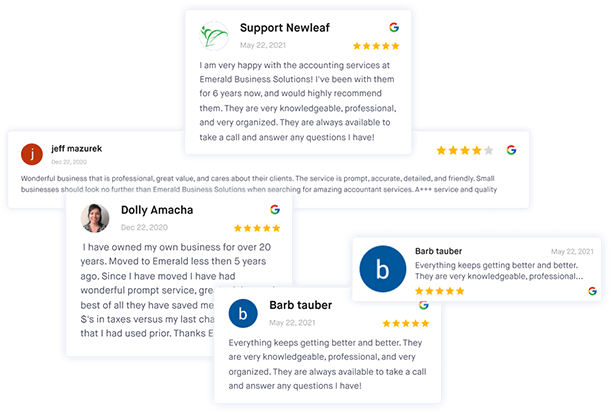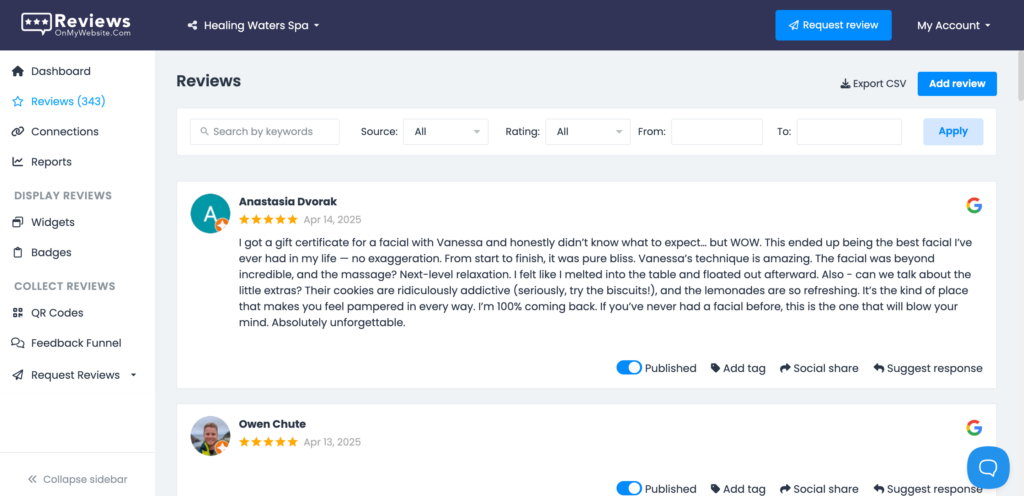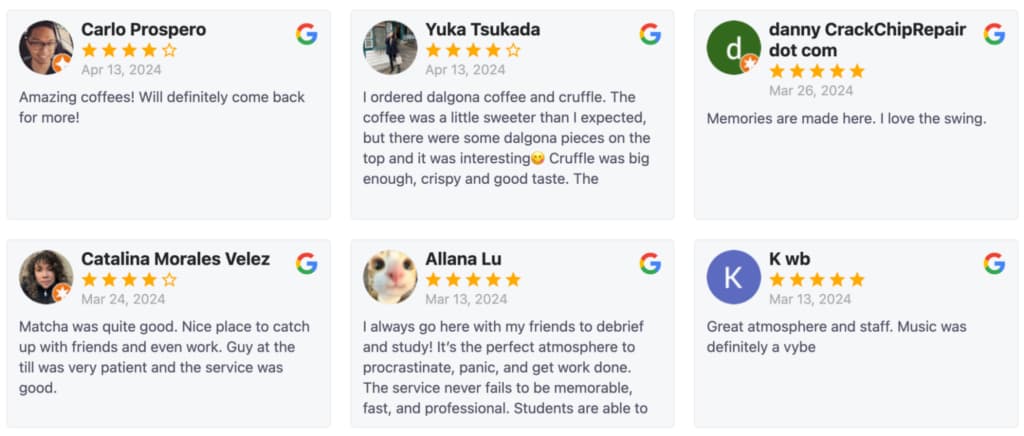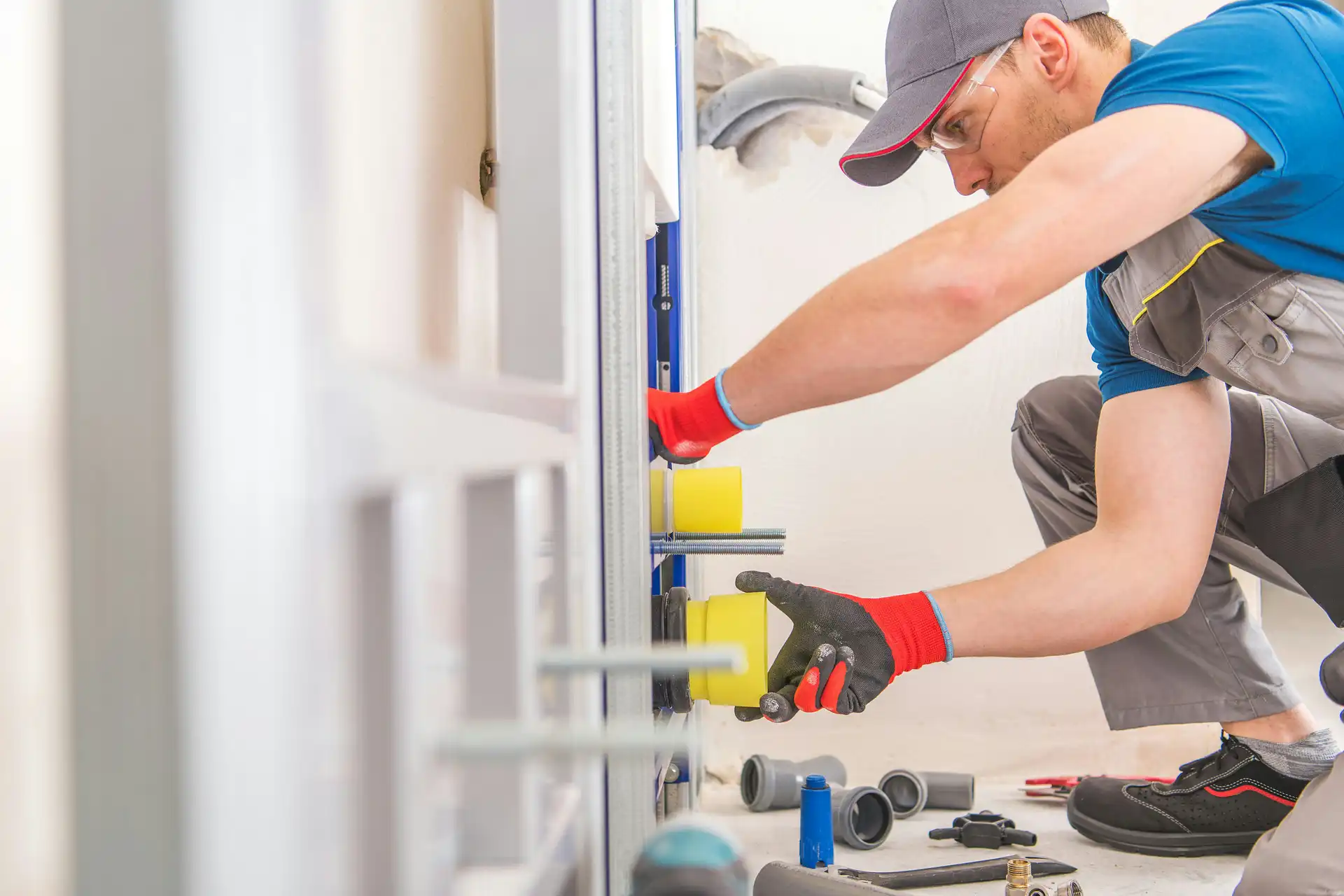Plumber SEO (search engine optimization) helps your business show up when people in your area search for plumbing help, turning Google searches into real calls and booked jobs.
For plumbers, that means showing up in the map pack and organic listings when someone searches for “plumber near me” or “water heater repair.” These are the results that drive the majority of calls and messages.
When your website, reviews, and online listings all tell Google the same story (that you’re a trusted, local plumber), you move up the rankings and attract more work.
In this guide, you’ll learn practical ways to do it: from claiming your Google Business Profile to earning reviews, speeding up your website, and tracking which pages bring the most calls.
1. Claim and Optimize Your Google Business Profile
A complete Google Business Profile (GBP) is the fastest way to appear in Google’s local results and earn trust from nearby customers.
Your GBP is the free listing that shows your name, phone number, reviews, photos, and business hours in Google Search and Maps. It’s often the first impression people get—and many homeowners choose directly from the map pack without visiting a website.
Here’s how to set it up right:
- Claim and verify your profile: Visit Google Business Profile, search for your company, and follow the steps to claim it. Once verified, you can edit details, reply to reviews, and see how customers find you.
- Fill out every field: Add your business name, address, phone number, and hours exactly as they appear on your website. Include service areas if you travel to customers.
- Pick accurate categories: Choose “Plumber” as your main category, and add others like “Drainage Service” or “Water Heater Repair Service” if relevant.
- Add photos and services: Post real photos of your team, trucks, and completed jobs. List each service you offer, with a short description.
- Stay active: Add a weekly post or answer customer questions. Google rewards consistent updates with better visibility.
2. Keep Your Business Information Consistent Everywhere
Matching your contact details across the web is one of the simplest but most important ranking signals for local SEO.
When your business name, address, and phone number (NAP) appear the same on every website, Google can confidently connect all those mentions to your company. That consistency helps you rank higher in the local Map Pack and organic results.
Inconsistent listings—like one profile showing “Main St.” and another using “Main Street,” or different phone numbers—can confuse both customers and search engines.
When Google isn’t sure which version is correct, it may show your competitors instead.
Clean, consistent listings also prevent missed calls, lost leads, and negative reviews caused by wrong information.
To clean things up:
- Audit your listings: Search your business name online and list every place it appears: Google, Yelp, Angi, Facebook, and local directories.
- Correct or remove duplicates: Fix outdated addresses or phone numbers and request removal of duplicate listings.
- Add missing core profiles: Create listings on major directories used in your area, such as Yelp or the local Chamber of Commerce.
- Keep the same format: Write your business name and address the same way everywhere.
- Review quarterly: Check your listings every few months, especially after moving or changing phone numbers.

Improve your online reputation
Use ReviewsOnMyWebsite to get more reviews for your plumbing business.
3. Build Strong Service Pages for Each Job You Offer
Dedicated service pages help your plumbing business show up for specific searches like “drain cleaning near me” or “toilet installation.” Each major service deserves its own page that clearly explains what you do and why someone should hire you.
These pages tell Google what you specialize in and help customers quickly find the service that matches their problem. When built correctly, they also convert more visitors into phone calls and booked jobs.
To make your service pages work harder:
- Start with the problem and the fix: Begin by describing the issue your customer is facing and how you solve it. Keep your language simple and focused on the benefit, such as “We clear clogged drains quickly and make sure the problem does not come back.”
- List common symptoms and your process: Mention warning signs homeowners might notice, like slow drains, water leaks, or low pressure. Then explain the steps you take to fix the issue so people know exactly what to expect when they call.
- Add visuals and proof: Include before-and-after photos of real jobs and short quotes from customer reviews. This builds trust and shows potential clients that you have proven experience solving similar problems.
- Add a clear call to action: Place a large “Call Now” or “Request a Quote” button near the top of the page and repeat it near the bottom. Make sure your phone number and contact form are easy to find on both desktop and mobile.
- Link related pages together: Connect services that naturally go together, such as “Water Heater Repair” and “Water Heater Replacement.” These internal links help customers find what they need faster and also strengthen your website’s SEO by showing Google how your pages are related.
4. Create City or Area Pages to Rank in Nearby Towns
City and area pages help your plumbing business appear in searches from nearby towns, even if you do not have an office there. Many people type “plumber in [city name]” when looking for help, and Google tries to show companies that mention and serve that specific area.
Creating a separate page for each key location helps you show up for those searches and builds local trust.
Each page should feel unique, show local proof of work, and make it easy for people in that city to contact you.
Choose the Right Service Areas
Start by deciding which towns or neighborhoods you want to focus on. These should be areas where you already get calls or where you want to expand.
Choose five to eight priority locations rather than trying to cover every town at once. Focusing on your best service areas allows you to write stronger, more personalized pages that perform better in search results.
Once you have those areas listed, you can create one page for each and link them together.
Add Local Proof That You Work There
Your city pages should make it clear that you actually serve those communities. Mention recognizable neighborhoods, landmarks, or major streets where your team often works.
Add photos of jobs done in that area, customer reviews that reference the city, or even permits you have pulled locally. This kind of local detail tells both Google and potential customers that your business has a real presence there.
The more specific you can be, the more authentic the page feels.
Write Each Page as a Unique Resource
Avoid copying and pasting the same text across multiple city pages. Duplicate content can hurt your rankings and makes your site feel less trustworthy to readers. Instead, write a short introduction for each city that highlights its unique plumbing needs or challenges.
For example, a city with older homes might need more pipe replacements, while newer neighborhoods may request more installation work. Taking the time to customize each page helps you stand out from competitors who reuse the same template for every area.
Make Contact Simple and Obvious
Every city page should tell visitors exactly how to reach you. Place your phone number and service hours at the top of the page, along with a short line such as “Proudly serving homeowners across [City Name].”
Include a clear “Call Now” button that works on mobile devices so people can reach you immediately. If you offer emergency plumbing, list that clearly to capture after-hours searches.
The easier it is for someone in that city to contact you, the more likely they are to become a customer.
Connect All City Pages in One Place
Once your city pages are published, make sure they are easy to find from anywhere on your site. Add an “Areas We Serve” section to your main menu or footer with links to each location page. Inside each city page, include links to nearby areas you cover to help visitors find the right page quickly.
This internal linking also helps Google crawl and understand your service area coverage. Think of it as building a map within your website that guides both users and search engines to the right location.
5. Manage Your Online Reputation
Online reviews are one of the most powerful signals of trust for both Google and potential customers. They influence how high you appear in local search results and whether homeowners choose you once they find you.
In fact, 1 in 5 consumers always check reviews before making a purchase, and 86.2% use Google specifically to read them. For plumbers, strong and consistent reviews can make the difference between being the first business called and being ignored.
Managing your reputation means earning reviews regularly, replying thoughtfully, and showing them where they matter most.
Ask for Reviews After Every Job
The best time to ask for a review is right after a successful job while the experience is still fresh. A short text or email with a direct link to your Google profile makes it easy for customers to leave feedback.
Pro tip: Use our free Google review link generator to create a link you can share with customers.
Let them know that reviews help other homeowners find a reliable plumber, which increases their willingness to respond. By asking consistently, you build a steady stream of recent reviews that Google values when ranking local businesses.
Over time, this pattern of activity helps you stand out in the Map Pack and improves your credibility with potential customers.
Keep It Honest and Transparent
Google’s algorithms can detect unnatural review patterns, so authenticity is key. Never offer discounts, rewards, or gifts in exchange for a review, and don’t filter out customers who had issues.
Ask every client for feedback, regardless of how you think the job went. Honest reviews look more natural and trustworthy to both search engines and future customers.
When people see a realistic mix of positive and constructive feedback, it feels more genuine—which can actually increase conversions.
Reply to Every Review, Good or Bad
Responding to reviews shows that you care about your customers and that you actively manage your business. A simple thank-you message that mentions the service provided adds a personal touch and reinforces your professionalism.
When someone leaves a negative review, stay calm, apologize briefly, and offer to make things right offline. According to industry research, 78.3% of buyers say seeing a thoughtful response to a negative review makes them more likely to trust a business.
Regular, professional replies also signal to Google that your business is active and engaged, which can indirectly help your local rankings.
Pro tip: You can use ReviewsOnMyWebsite to read and reply to all the reviews your business gets across different platforms from one central location.

Show Reviews on Your Website
Displaying reviews on your website gives visitors instant proof that others trust you. Add a few review snippets to your homepage, service pages, and contact page near your “Call Now” buttons.
When people see real testimonials while deciding whether to call, it reduces hesitation and increases conversion rates. Fresh reviews also show search engines that your business is active and customer-focused.
If possible, include the customer’s first name and city to add credibility and local relevance.
ReviewsOnMyWebsite’s review widget lets you add reviews to your site in seconds. All you need to do is add a short snippet of code to your site.

Make Review Requests a Routine Part of Your Work
Turning review requests into a habit ensures you never forget this crucial part of your marketing. Add “Ask for a review” to your team’s post-job checklist so it becomes automatic. This consistency keeps your profile active, which both Google and potential customers notice.
When reviews come in regularly instead of in big bursts, your rating looks more authentic. Over time, this steady flow of feedback builds a reputation that not only attracts more leads but also strengthens your SEO performance.
Pro tip: You can use ReviewsOnMyWebsite to set up automated email and SMS review request sequences to ensure every customer gets asked to leave a review.

Improve your online reputation
Use ReviewsOnMyWebsite to get more reviews for your plumbing business.
6. Improve On-Page SEO for Every Page
Small on-page adjustments help Google understand what your pages are about and match them to local searches.
On-page SEO covers everything you can control on your website: titles, headings, links, and descriptions. These signals tell Google exactly what you do and where you do it.
Here’s how to get it right:
- Write clear title tags: Include your main service and city name so Google knows where you work, such as “Water Heater Repair in Dallas.” Title tags are what show up as clickable headlines in search results, so make them short, specific, and focused on what customers search for.
- Use descriptive headings: Your main heading (H1) should match the service, like “Drain Cleaning Services in Austin,” while smaller headings (H2s) can describe steps, benefits, or common issues. This structure makes pages easier for customers to scan and helps Google understand your content layout.
- Add meta descriptions that invite clicks: Meta descriptions appear under your link in Google and can influence whether people click. Keep them under 160 characters, include your keyword naturally, and end with a simple call to action such as “Call today for fast, affordable service.”
- Link between pages: If someone is reading about “Leak Repair,” include a link to “Pipe Replacement” or “Emergency Plumbing” to guide them to related services. Internal links help visitors find what they need and tell Google how your pages connect, improving your overall SEO.
- Use descriptive image text: Add short alt text to every image that clearly explains what’s in it, such as “Plumber replacing sink drain in Houston.” This helps Google index your images properly and ensures your site stays accessible to all users.
7. Publish Helpful Local Content Regularly
Regularly posting helpful, local content keeps your plumbing business visible online and shows both Google and potential customers that you are active in your community. Search engines reward websites that share new, useful information because it signals expertise and reliability.
This type of content also helps you appear in searches from homeowners who are researching problems before calling a plumber. Over time, these posts build familiarity and trust, making it more likely people will choose your business when they need help.
Share Seasonal Tips That Solve Real Problems
Seasonal content helps you stay relevant throughout the year and capture searches tied to specific weather-related plumbing issues. You can write short posts about how to prevent frozen pipes in winter, check outdoor faucets before summer, or prepare pipes before a cold snap.
These topics attract people searching for immediate advice and add fresh, local keywords to your website. They also show Google that your business provides ongoing value to nearby residents.
When readers find your advice helpful, they are more likely to remember and contact you later.
Write Simple Maintenance Guides
Maintenance articles help you reach people who are looking for practical, step-by-step guidance before they decide to hire a professional. Write about common topics such as flushing a water heater, testing a sump pump, or finding hidden leaks.
These posts keep visitors on your website longer, which tells Google that your content is useful and relevant. Many homeowners who start by reading your advice end up calling when they realize the repair is more complex than expected.
These guides position your company as a helpful expert rather than just another service provider.
Explain What Affects the Cost of a Job
Many people search online to understand what plumbing repairs might cost before making a decision. Articles that explain how price depends on labor, materials, or project size help answer these questions clearly and honestly.
Cost-related content builds trust because it shows transparency and professionalism. It can also include phrases like “plumbing repair cost in Dallas,” which helps your business appear for local searches.
Highlight Local Stories and Community Work
Writing about your community involvement strengthens both your brand and your local SEO. Share short stories about sponsoring local sports teams, supporting charity events, or completing major projects in specific neighborhoods.
These posts naturally include city names, local landmarks, and familiar references that reinforce your local relevance in search results.
They also humanize your business and make customers feel more comfortable choosing you over a company they do not recognize. Google values this kind of authentic, location-specific content because it proves that you genuinely operate in the area you serve.
Link to Your Relevant Service Pages
Every blog post should guide readers toward the services you offer. If you publish a seasonal post about frozen pipes, link it to your “Pipe Repair” page. If you write about maintaining water heaters, link it to your “Water Heater Repair” or “Installation” page.
These internal links help Google understand how your website is organized and which pages are most important. They also make it easier for visitors to move from reading helpful advice to booking your services, which turns your content into a steady source of qualified leads.
8. Earn Local Links From Real Businesses
Links from other local sites act like endorsements for your plumbing company.
Each link is a small vote of confidence. When trusted community sites, suppliers, or organizations link to you, it helps Google verify that you’re a legitimate, established business in the area.
Ways to earn local links include:
- Join community groups: Chambers of Commerce, business associations, and networking clubs often list members on their websites with a link to your business. These are high-quality, locally relevant links that signal to Google that your company is part of the local business community.
- Ask your suppliers: Many plumbing suppliers, distributors, or manufacturers have “Find a Contractor” or “Trusted Partners” sections on their sites. Submitting your company details for inclusion provides a credible, industry-related link that can help your site rank higher for plumbing-related searches.
- Support local events: Sponsoring youth sports teams, community fairs, or charity projects often gets your business mentioned and linked on event websites. These local sponsorship links show Google that your company is active and engaged in the area you serve.
- Collaborate with other trades: Work with trusted electricians, HVAC technicians, or roofers to exchange website mentions and referrals. These partnerships not only help both businesses reach new customers but also create relevant links that strengthen local SEO.
- Offer useful resources: Create simple downloadable resources like plumbing maintenance checklists or seasonal prep guides and share them with local groups. When neighborhood associations or community blogs post your resource, they’ll often link back to your website, giving you a high-quality, local backlink.
9. Make Sure Your Website Loads Fast and Works on Mobile
A fast, easy-to-use website is one of the most important parts of plumber SEO. When your site loads quickly and works well on phones, visitors are more likely to stay, click, and call you.
Google also considers speed and mobile usability when deciding which businesses to show at the top of local search results. That means a slow or cluttered website can cost you both rankings and customers.
Here’s how to keep your site fast, user-friendly, and optimized for local searches:
- Compress images: Large photo files can make your website load several seconds slower, which frustrates visitors and lowers site performance. Use smaller, optimized image files that still look sharp so your pages load quickly and keep people from leaving.
- Keep the layout simple: Complicated designs with sliders, animations, or heavy graphics increase loading times and confuse visitors. A clean, focused layout helps Google read your content more easily and ensures users can find key details without distractions.
- Add large, clear buttons: Make “Call Now” and “Text Us” buttons visible and easy to tap on any screen size. When visitors can take action quickly, it improves engagement metrics that Google uses to gauge whether your page is helpful.
- Test speed monthly: Use Google PageSpeed Insights to measure how quickly your site loads and identify the elements that slow it down. Regular testing and small fixes, such as compressing files or removing unused scripts, can significantly improve both user experience and rankings.
- Check it on your phone: Open your site on a mobile device and go through every page to ensure forms, buttons, and links work smoothly. A responsive website that looks good and functions properly on phones helps you rank higher in mobile searches and turns more visitors into paying customers.
Frequently Asked Questions About Plumber SEO
What Is Plumber SEO?
Plumber SEO is the process of improving how easily your business appears in Google Search and Maps. It includes optimizing your Google Business Profile, website, and online reviews so that local homeowners can find and contact you when they need plumbing help.
How Much Does Plumber SEO Cost?
The cost depends on your goals and competition. Many plumbers start with free steps like setting up a Google Business Profile and collecting reviews. Professional help can range from a few hundred to a few thousand dollars monthly depending on how much content and link building work is involved.
How Do I Get Started With Plumber SEO?
Start with the basics: claim your Google Business Profile, make sure your contact details are consistent, and ask every happy customer for a review. Then create one solid service page that clearly explains what you offer and add photos of your recent work.
How Long Does It Take To See Results?
You may see small improvements, like more Map Pack visibility or calls, within a few weeks. Stronger, lasting results often appear after a few months of consistent updates, new reviews, and optimized pages.
Do I Need City Pages If I Travel To Customers?
Yes, city pages can help customers in nearby areas find you. Make each page unique with local photos, reviews, and short text about the types of plumbing work you do in that area.
What Should I Do If I Get a Negative Review?
Reply politely and quickly. Thank the customer for their feedback, apologize if something went wrong, and invite them to contact you directly. A thoughtful response shows professionalism and can even earn trust from future customers.
Keep Your Business Visible and the Phone Ringing
Good plumber SEO is not about complicated tactics but about consistency. Keep your Google Business Profile active, ask for reviews after every job, and make your website simple and fast.
Start with two small actions this week, such as adding new photos and updating your business listings, then check your results at the end of the month.
As you repeat these steps, your visibility improves, your phone rings more often, and your reputation grows stronger across every online platform. That steady and reliable progress is what keeps customers finding you and your schedule full of work.




